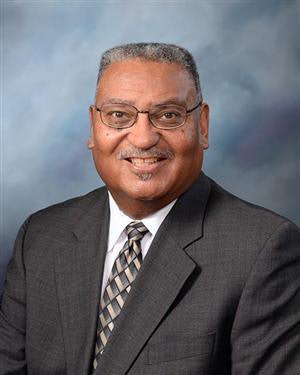Trends of smoking and tobacco use on college and university campuses has seen a steady decline in recent years as a result of advocacy and tobacco education campaigns by several public health organizations.
Recent efforts to curtail tobacco use at community colleges and historically Black colleges and universities specifically have continued through the Truth Initiative “Tobacco-Free College Program.” Baltimore City Community College (BCCC) is the latest school to receive a $20,000, 17-month grant from the initiative to educate students on the effects of tobacco use and to develop and implement comprehensive tobacco-free policies.
 Dr. Gordon May
Dr. Gordon May“It is vital that our students know the risks tobacco and second-hand smoke pose both for themselves as well as their families and communities,” said Dr. Gordon F. May, BCCC president and CEO. “This grant will enable BCCC to work toward the goal of being a smoke-free campus for the health of our students and for all of Baltimore.”
The Truth Initiative’s campaign acknowledges that tobacco companies often target lower-income communities, African-American and Latino communities and younger people to get them to smoke. As a result, the initiative’s partnership with the CVS Health Foundation underscores that not only is fighting tobacco use a public health issue, it is a social justice issue.
Amy Taylor, senior vice president of community and youth engagement at the Truth Initiative, says that a majority of community colleges and HBCUs — institutions that largely serve students of the targeted demographics – do not have tobacco- and smoke-free policies.
Only 354 community colleges, which is roughly one-third of all community colleges, and less than half of the 102 federally recognized HBCUs have smoke-free policies, Taylor told Diverse. Some challenges to implementing comprehensive smoke-free policies at community colleges and HBCUs stem from fears that the policies will affect enrollment if students have to travel off campus to smoke or use tobacco products. Another challenge is the fact that these institutions may prioritize other problems around funding, enrollment or classes.
“Sometimes this isn’t the top of their priority list,” Taylor said. “That’s why we created this program to help them make it as easy as possible to understand the issue, get students involved and help pass these policies.”
The Truth Initiative has awarded the “Tobacco-Free College Program” grant to more than 135 colleges and universities so far. Faculty and staff were charged with creating a task force to assess campus-specific problems and were encouraged to develop a public education campaign around smoking and tobacco use for the campus community.
Some schools that have been awarded the grant have done poetry readings, created dance programs or put up signs around campus to mobilize students to stop smoking and end tobacco use, Taylor said.
In 2018, BCCC will host tobacco-free educational events and hire two student interns to coordinate tobacco-free projects. The institution will also share marketing materials that encourage students to stop smoking and understand the risks of tobacco and other smoking products.
Efforts to decrease and prevent tobacco use on campuses across the country is prominent because 99 percent of smokers start smoking before they turn 26 years-old, the Truth Initiative said on its website.
To date, the American Nonsmokers’ Rights Foundation (ANRF) lists 2,064 “100% smoke-free” campus sites, up from 446 in 2010. Out of these institutions, 1,736 are completely tobacco-free, 1,649 prohibit e-cigarette use, 845 prohibit hookah use and 209 prohibit the smoking or vaping of marijuana, the foundation reports.
The Truth Initiative, CVS Health Foundation, and ANFR estimate that tobacco use will continue to decline among adolescents due to more awareness on the health effects of smoking and second-hand smoke, changing social norms and local and state laws that prohibit smoking in the workplace, restaurants, bars and now campuses at some state schools.
ANFR notes that these preemptive education campaigns and policies could “prevent a new cohort of lifetime smokers.” The Truth Initiative’s grants are a part of CVS Health’s Be The First campaign, a five-year, $50 million initiative that supports education, tobacco control and “health behavior programming,” with the ultimate goal of delivering “the nation’s first tobacco-free generation.”
Tiffany Pennamon can be reached at [email protected]. You can follow her on Twitter @tiffanypennamon.





















